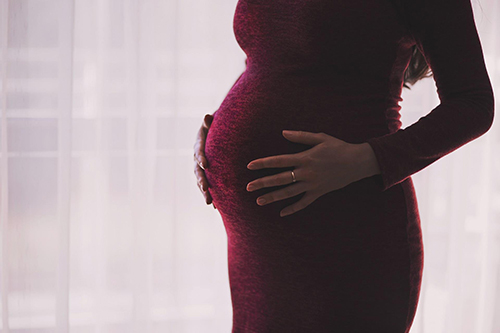The Bristol team, led by Professor Abigail Fraser, will receive £476,620 from the BHF to support research that aims to shed light on the warning signs of future heart problems after pregnancy.
Women who develop high blood pressure or pre-eclampsia during pregnancy are at higher risk of developing heart and circulatory diseases in future. Researchers have found that many women who experience these complications also have signs of maternal vascular malperfusion (MVM) in their placentas, caused when arteries in the uterus don’t undergo the necessary changes to ensure that the placenta and the baby receive adequate blood supply during pregnancy.
In this study, researchers will use data and samples from the Children of the 90s study in the UK and a study in the Netherlands that have followed women since they were pregnant to track their health over many years. They will test their placentas to identify those that show signs of MVM and investigate whether this is associated with the development of heart and circulatory diseases in the following years.
Placentas from the Children of the 90s study were collected from the original pregnant mothers recruited to take part in in the early 1990s.
The team hopes this will prove a simple way to spot women who may be at risk early, so that they can be offered preventative treatments and monitoring to help ward off future heart problems.
The University of Bristol research, which involves co-applicants and collaborators in the UK and the Netherlands, is funded through a new partnership comprising the three European funders. Collectively, they have committed over €5 million (approximately £4.7 million) including Bristol, over the next four years to four international research teams tackling heart and circulatory diseases.
This is the fifth round of awards resulting from this partnership, and the second year specifically targeted at supporting mid-career researchers in the three countries. The funding will enable researchers to pool and exchange their knowledge, expertise, and resources to tackle some of the most pressing questions in cardiovascular science and medicine. The awards will also help to accelerate the investigators’ trajectories towards becoming future leaders in their fields of research.
Professor Metin Avkiran, Associate Medical Director at the BHF, said: "We're delighted to be funding this ambitious project in collaboration with our European partners, building on the success of the awards we have funded together over the past five years. By joining forces to support the best and the brightest across our countries to work together on pressing problems, we can ensure the money donated by our generous supporters goes further to power more lifesaving research.
"Scientific progress thrives on international collaboration. Through this funding we can help to cement collaborations between future research leaders that will continue to reap rewards long after these projects have finished."
The study is entitled 'Bi-national investigation of placental pathology and maternal cardiovascular health (BI-PATH)'. Principal investigators of the study are Abigail Fraser, Professor of Epidemiology at the University of Bristol and Dr Casper Mihl in the Cardiovascular Research Institute Maastricht (CARIM) at Maastricht University Medical Center.
